With many Nigerians now paying as high as between N250 and N400 for a litre of petrol, fuel marketers, economists and the organised private sector (OPS) have again asked the federal government to hands off the regulation of the price of the product to allow market forces prevail.THISDAY’s investigation revealed that most filling stations across the country have continued to sell the product, far above the regulated prices, despite the huge resources spent in subsidising the prices.
THISDAY gathered at the weekend that only the retail stations belonging to the Nigerian National Petroleum Company (NNPC) Limited and the few marketers that are members of the Major Oil Marketers Association of Nigeria (MOMAN) that were selling petrol between N165 and N170.Other retail outlets owned by marketers under the aegis of the Independent Petroleum Products Marketers Association of Nigeria (IPMAN), which controls the largest number of filling stations nationwide were selling far above the regulated prices.
For instance, several filling stations in Jalingo, the Taraba State capital, were selling at N295 per litre while some filling stations were selling at N285.00 and N290.00.In Kaduna, motorists were paying between N280 to N310 per litre of petrol.Filling stations located along Kachia Road, near Refinery Quarters, were selling between N280 and N305.Other stations located at Sabon Tasha, Command Junction and behind the Fire Service also sold at N310.However, at the NNPC Mega Station located after the Indomie factory, along Kachia road, motorists were buying at N185 per litre amid long and frustrating queues.
In Sokoto, petrol was being sold between N180 and N350.When THISDAY visited the NNPC station at the Trade Fair Roundabout, the product was not available but the attendants claimed that their official price was N180 per litre.
Filling stations located at Tamaje, as well as Gusau and Illella roads in Sokoto were selling between N200 and N300.In Yola, Adamawa State, the prices varied between N290 and N360 at filling stations.THISDAY gathered that filling stations at Bachure Junction, Numan Road, Jambutu, and Ondo Roundabout Maidoki in Yola were selling at varying prices – N290, N295, and N297.
In Mubi, most of the filling stations were selling at between N340 to N360 per litre while in Numan, Ganye, Guyuk and Lamurde, the product was sold for N360 per litre.In Kano, the price was as high as N310 per litre in most of the filling stations across the Kano Metropolis.Some filling stations managed by the major dealers in the state were selling the pump price at N290, while others were selling at N280.At Zaria Road, the price stood at N310, while on Mariri Road, the price was N285.
On Hadejia Road and Maiduguri Road, the petrol price was N280 at the weekend.In Nasarawa State, some filling stations were selling at N290 along Jos road at the state capital, Lafia.Other stations located along Makurdi road in Lafia, were selling at N289 per litre, while the NNPC Mega Station in Jos road was selling at N179:00 per litreThe price of petrol at filling stations in Bauchi has also hit N310 per litre.
THISDAY gathered that the price of the product recently rose from N297-N302 following the claims by the marketers that there was a drop in supply by NNPC Limited.Most of the filling stations along Yelwa Road, Maiduguri Road, Bauchi-Jos Road, and the Bauchi metropolis were selling at N305-N310 at the weekend.In Onitsha, Anambra State, THISDAY reporter bought the product at N320, while in Owerri, Imo State, the price was N400.It was learnt that petrol was cheaper in the South-west states than in the South-east and South-south due to the high cost of hiring vessels to convey the product from the high sea down to the eastern zone of Calabar and Port Harcourt.
Petrol marketers who reacted to the development argued that the current realities have made it glaring that spending huge trillions of naira on petrol subsidy, even when the product is still not available in many filling stations, is no longer sustainable.In their separate chats with THISDAY, the duo of the Executive Secretary of the Major Oil Marketers Association of Nigeria (MOMAN), Mr. Clement Isong and the National President of the Petroleum Products Outlets Owners Association of Nigeria (PETROAN), Dr Billy Grills-Harry, said that government should quickly abolish subsidy regime and free the projected N6 trillion for petrol subsidy in 2023 for other critical sectors.
They specifically advised that the subsidy budgets be channelled into fixing Nigeria’s refineries, buying gas-fired mass transit buses as a promotion of alternative energy, and introducing some subsidy to boost food production to reduce food costs.
At the prevailing exchange rate, the marketers projected that the correct market price of petrol would be between N450 to N500 per litre, urging the monetary authorities to make foreign exchange available to all marketers to enable every marketer to go into importation of petrol.Against the provisions of the Petroleum Industry Act (PIA), which approved for full deregulation of the downstream petroleum sector, the federal government had in January last year postponed the removal of petrol subsidy by 18 months, to June this year.
However, Isong said MOMAN members were “struggling in the distribution challenges to get the products to the stations.”He added: “We have to come to the terms that it is increasingly difficult if not impossible to supply petrol and sell at that government’s price and by forcing NNPC to do it, it has become a big challenge for them.”
“So, people who are ready to take vessels and go to the high sea and collect the product from the NNPC there and bring to depots in the east in Port Harcourt, in Calabar, they are doing it at a higher cost and when you bring it at a higher cost, they then go and transfer that cost to IPMAN and IPMAN transfers it to the customer.”
Isong argued that subsidy was killing the country’s economy.On his part, Grills-Harry also urged the government to jettison fuel subsidy and fully deregulate the downstream sector, maintaining that subsidy was not making any positive impact on the sector and the citizens.
He added that all stakeholders must work together to end the current fuel scarcity in the country, adding that the Forex should be made available to every player to enable them to compete in the market and ensure product availability at every station across the country.
The members of the Organised Private Sector of Nigeria (OPSN), economists and financial experts have also called on the federal government to take urgent steps to officially terminate the policy of subsidising the pump price of petrol before June 2023.They, however, advised the government to remove the subsidy in phases and to ensure that the four petrol refineries in the country are brought back to perfect shape.
A former Professor of Economics and Statistics, at the University of Benin, Professor Mike Obadan, summed up the argument: “In light of the foregoing, it is clear that the government doesn’t need to continue to pay subsidies, which have become more and more unnecessary and fraudulent. Why continue to pay subsidies which are not transmitted to consumers in the form of lower prices of petroleum products? No cogent reason whatsoever.”
Others who shared this view were the Director General of Nigeria Employers’ Consultative Association (NECA), Mr. Adewale Oyerinde; the Director General of the National Association of Chambers of Commerce, Industry, Mines and Agriculture, Mr. Sola Obadimu; the Founder of Centre for the Promotion of Private Enterprise (CPPE), Dr. Muda Yusuf; a Professor of Economics, University of Uyo, Professor Akpan Ekpo, and the Chief Executive Officer, BIC Consultancy Services, Dr. Boniface Chizea.
According to Yusuf, “we should not wait until June 2023 before removing the subsidy. The reality is that the current subsidised pricing is not sustainable and imposing the current prices on the pumps is like swimming against the tide. The fact is that there is a limit that you can suppress the market forces of demand and supply.”
On his part, Oyerinde of NECA said the argument for the subsidy has been weakened by the current situation where Nigerians are already paying between N300 and N650 per litre for the same product that is supposed to have been subsidised and be sold at N165.“The humongous amount spent in the guise of subsidy regime is literally being used to subsidise inefficiency, corruption and consumption. In other climes, these funds would have been judiciously used for more productive activities that will directly impact the lives of citizens, most especially provision of infrastructural facilities,” he added.
Director General of NACCIMA, Obadimu told THISDAY that the government at some point would take the hard decision to remove fuel subsidy as it could no longer sustain it. “The government at some point, will have to take the hard decision on the removal of fuel subsidy as they can no longer sustain it,” adding that the current situation where some petrol stations dispense petrol above the subsidised rate could be “government’s way of ‘testing’ the market to gauge citizens reaction before taking the hard decision” of yanking off the subsidy.”
On his part, Akpan, a professor of Economics, said: “First things first, let the local refineries start working; then we can determine whether a subsidy exists. What is being called subsidy is perhaps massive corruption. If the market price of petrol is determined and it seems high then phased removal of subsidy can commence after the local refineries are producing for domestic use.”
Chizea argued that “nobody is today benefiting from the official pump price. Fuel queues are back and roads are clogged up compounding the problems which commuters experience with the traffic congestion on our roads.“I hope the opportunity to let go of subsidy payments on fuel will not have been missed at this point. We must refuse to play the Ostrich but confront the reality of the situation as it currently stares us in the face.”
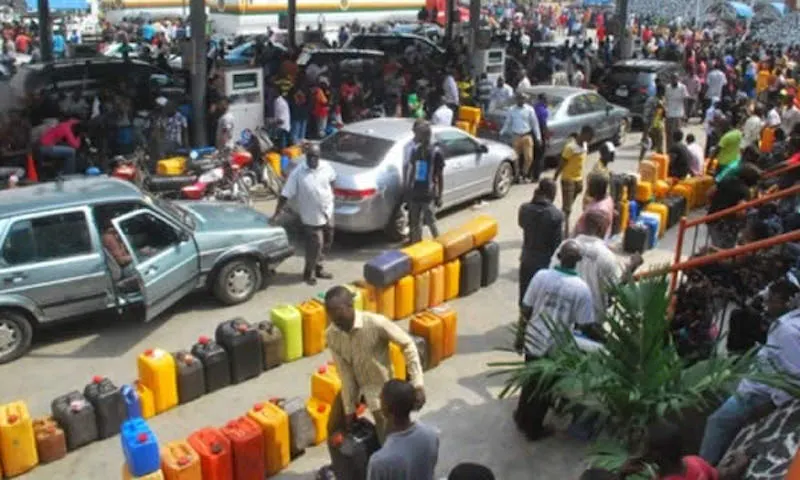





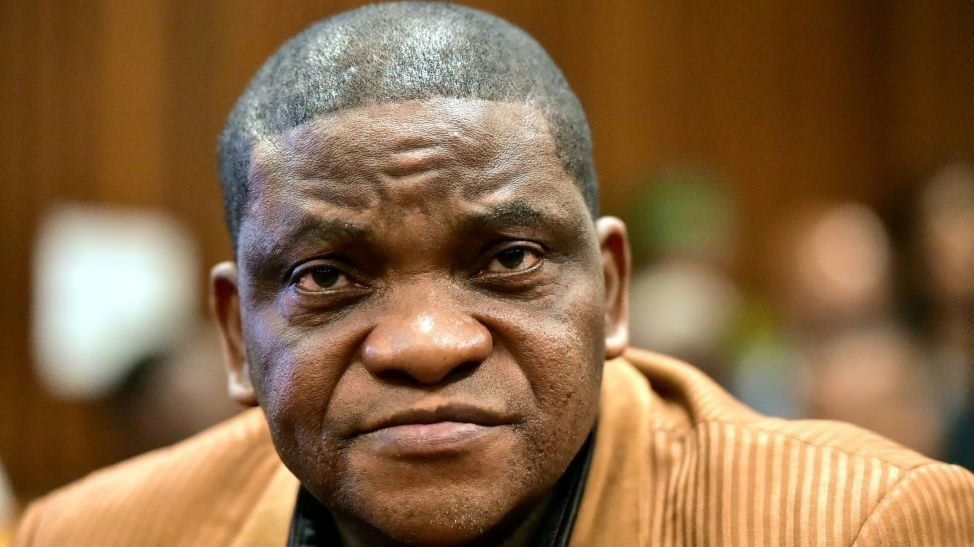

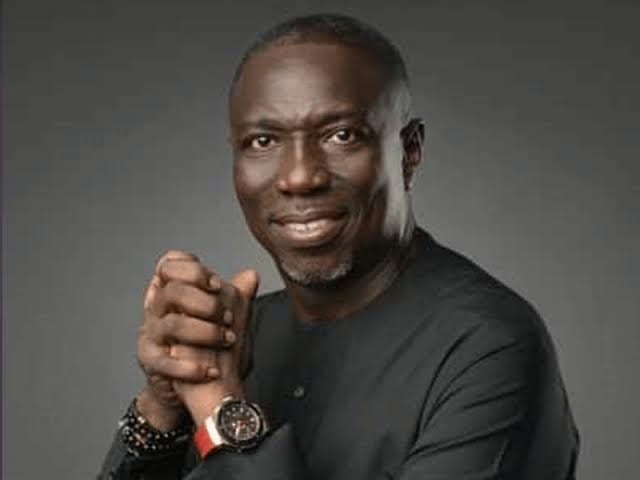
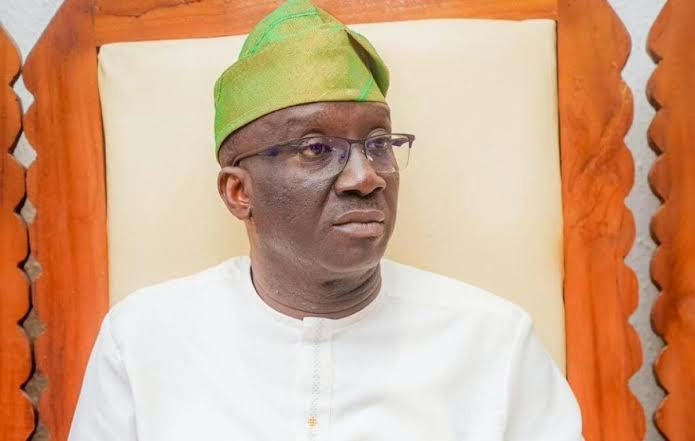
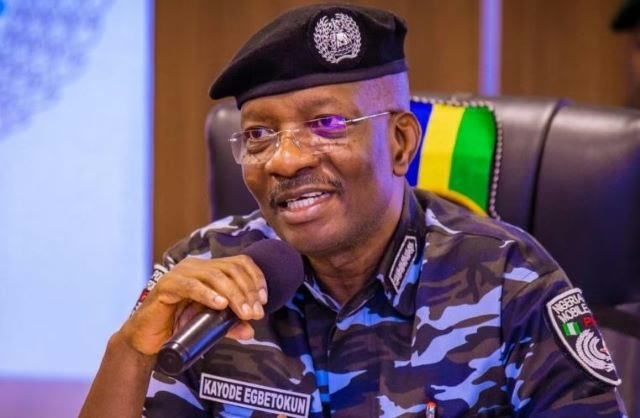

Leave a Reply